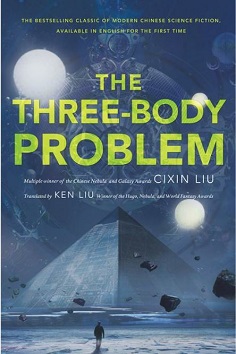Less then a week to go to Hugo voting closes, so here’s my final ballot. First, to recap, the categories I’ll be no awarding for Puppy-related reasons:
- Best Novella
- Best Novelette
- Best Short Story
- Best Related Work
- Best Dramatic Presentation, Long Form
- Best Dramatic Presentation, Short Form
- Best Editor, Short Form
- Best Editor, Long Form
- Best Professional Artist
- Best Fanzine
- Best Fancast
- Best Fan Writer
- John W. Campbell Award (not a Hugo)
Which leaves Best Novel:
- The Goblin Emperor — Katherine Addison.
- The Three-Body Problem — Cixin Liu
- Ancillary Sword — Ann Leckie
Best Graphic Story:
- Ms. Marvel, v1 — Adrian Alphona, G. Willow Wilson
- Saga, v3 — Brian K. Vaughan, Fiona Staples
- Sex Criminals, v1 — Matt Fraction, Chip Zdarsky
- Rat Queens, v1 — Kurtis J. Wiebe, Roc Upchurch
Best Semiprozine:
- Strange Horizons — Niall Harrison
- Lightspeed Magazine — John Joseph Adams, Stefan Rudnicki, Rich Horton, Wendy N. Wagner, and Christie Yant
- Beneath Ceaseless Skies — Scott H. Andrews
Best Fan Artist (the only category with no Puppy infestation):
- Ninni Aalto: cute cartooning, in a mix of Finnish and English
- Elizabeth Leggett: gorgeous paintings
- Spring Schoenhuth: also nominated last year for her jewelry, a reminder that fan art doesn’t need to be two-dimensional
- Steve Stiles: a regular nominee, decent enough but nothing special
- Brad Foster: another Fan Artist regular, with the most nominations and wins of everybody. He doesn’t need any more, does he?
And that’s the Hugo Awards dealt with for another year. Thanks to the Pups, it cost less time than last year, but I’m still filling my ballot in at the last possible moment.
